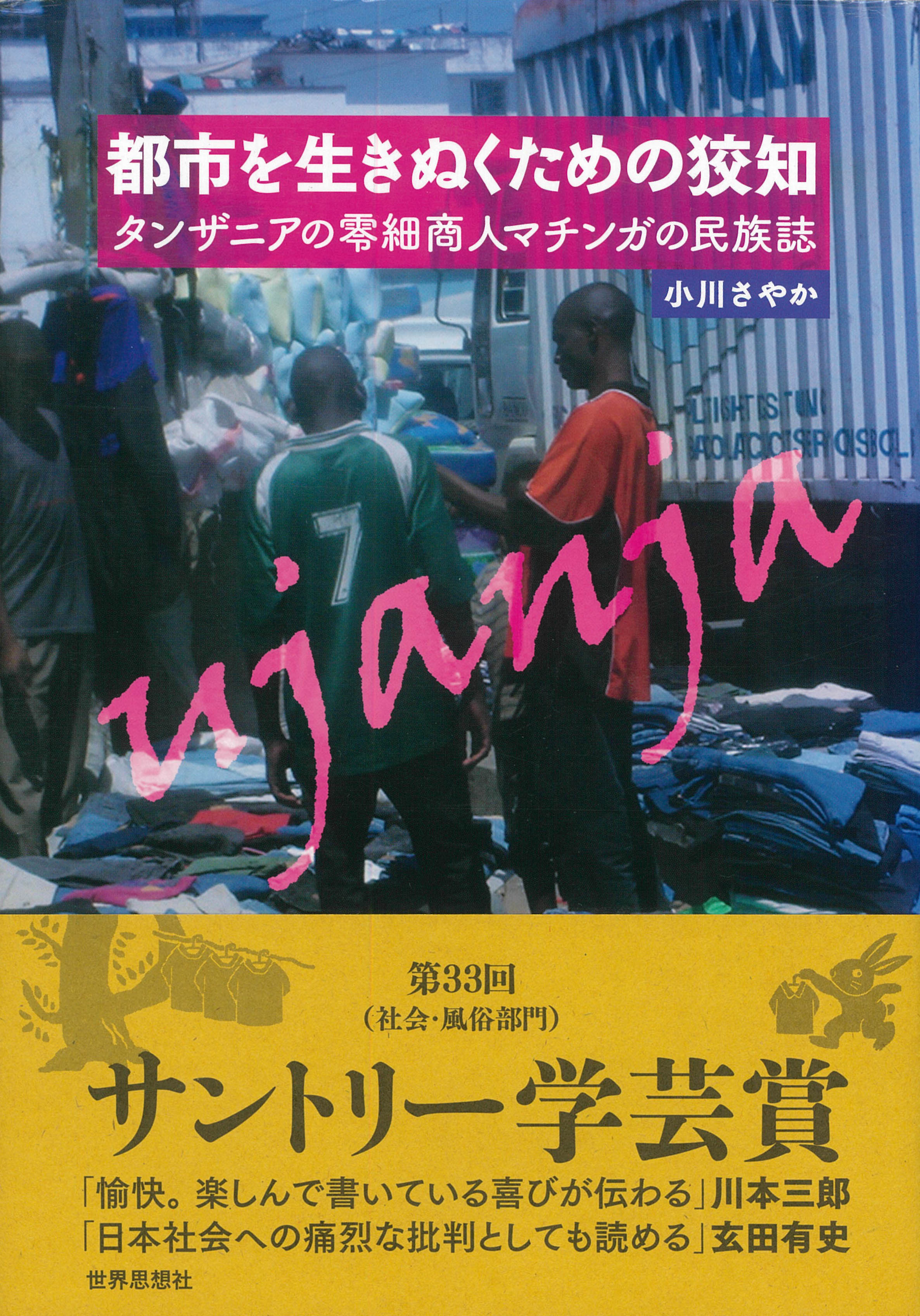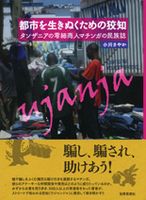- イベント
Cleverness to Survive the City

Cleverness to Survive the City: An Ethnography of the Machinga People, Tanzanian Small Traders
Sayaka Ogawa
210 mm x 148 mm
398pages
JPY5,200
ISBN 9784790715139
Pub date: June 2011
The author, who herself sold secondhand clothing on the streets of Tanzania utilizing underhanded tactics, including lies and deception, had more than five hundred regular customers. This long-selling book, now in its ninth printing, focuses on the “cleverness” that the streets cultivate and elucidates the business practices and anarchic associations of Tanzanian merchants with ties to Hong Kong.
Reviews
“The book is a thrilling read that seems to go beyond the boundaries of academia” —Asahi Shimbun
“It is a research book, but it is full of street enthusiasm and is as interesting as reading a non-fiction book. I admire the lively energy of the young scholar who ventured out of his study and laboratory into the African townships with great energy. ...Delightful. It conveys the joy of writing with pleasure.” —Saburo Kawamoto, critic
“This book can also be read as a scathing critique of Japanese society” —Yuji Genda, economist
Table of Contents
Preface
Introduction: The Machinga people and the cleverness to survive the city
Chapter 1: Secondhand clothing merchants in Mwanza City and research methods
Chapter 2: The commercial world of Machinga— Liquidity, diversity, and anonymity
Part I: Cleverness for mutual deception and assistance— The practical logic and communality behind business practices in Machinga
Chapter 3: Navigating the city— Practical logics and cooperation in support of commercial practices
Chapter 4: Ujanja— The cleverness to survive the city
Chapter 5: Earning among peers— Trust in cleverness and manipulations of intimacy
Part II: Cleverness opens the way— The historical transformation of Machinga’s commercial practices and communalities
Chapter 6: From “the way of the rat” to “the way of cooperation” — A history of secondhand clothing distribution and the birth of the Machinga
Chapter 7: Autonomy and equality in changing business practices
Part III: Cleverness creates the space— Machinga practices in street spaces
Chapter 8: Repression and riots— Conditions for moving to the market
Chapter 9: Living “between”— The stage of the street
Conclusion
Ujanja economy
Notes
Afterword
Works cited
Index
Keywords
Lies, deceit, bargaining, anarchism, peer, business, second hand clothing, regular customers, street, informal economy, gambling, merchants, Africa
Media Coverage
Asahi Shimbun
Award
33rd The Suntory Prize for Social Sciences and Humanities (Life and Society)
カテゴリ別お知らせ
- PR
- 重版
- 正誤
- NEWS
- NEWS
- NEWS




